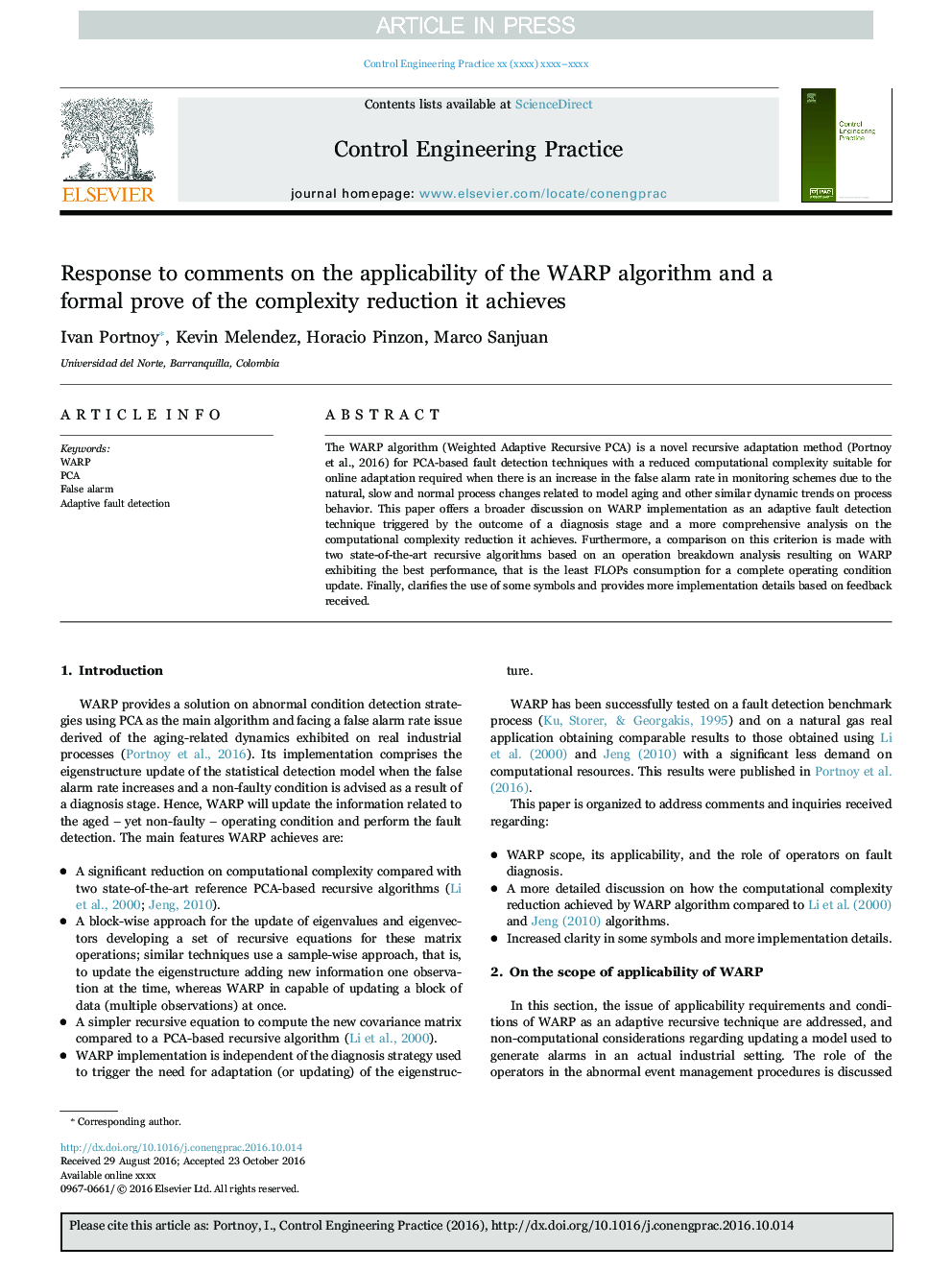| Article ID | Journal | Published Year | Pages | File Type |
|---|---|---|---|---|
| 5000469 | Control Engineering Practice | 2017 | 4 Pages |
Abstract
The WARP algorithm (Weighted Adaptive Recursive PCA) is a novel recursive adaptation method (Portnoy et al., 2016) for PCA-based fault detection techniques with a reduced computational complexity suitable for online adaptation required when there is an increase in the false alarm rate in monitoring schemes due to the natural, slow and normal process changes related to model aging and other similar dynamic trends on process behavior. This paper offers a broader discussion on WARP implementation as an adaptive fault detection technique triggered by the outcome of a diagnosis stage and a more comprehensive analysis on the computational complexity reduction it achieves. Furthermore, a comparison on this criterion is made with two state-of-the-art recursive algorithms based on an operation breakdown analysis resulting on WARP exhibiting the best performance, that is the least FLOPs consumption for a complete operating condition update. Finally, clarifies the use of some symbols and provides more implementation details based on feedback received.
Keywords
Related Topics
Physical Sciences and Engineering
Engineering
Aerospace Engineering
Authors
Ivan Portnoy, Kevin Melendez, Horacio Pinzon, Marco Sanjuan,
